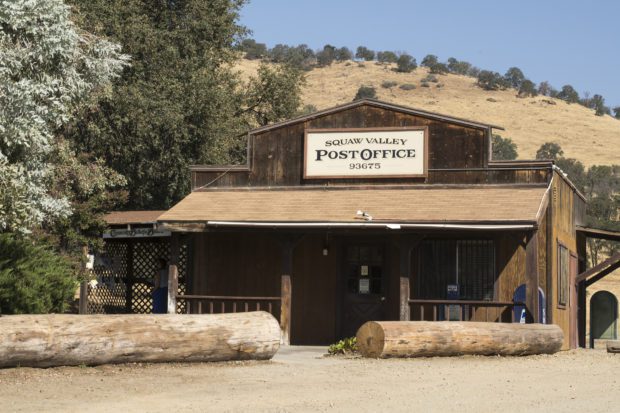
In 2019, in remembrance of Hanna Harris, the U.S. Senate designated her birthday, May 5, as the National Day of Awareness for Missing and Murdered Indigenous Women and Girls. Harris was just 21 and a single mom of a 10-month-old baby boy when she left the Northern Cheyenne Indian Reservation in Montana to go to a nearby town for July 4 fireworks.
She never came home, and when her family reported her disappearance, local law enforcement failed to take immediate action. A team of volunteers found her body four days later, and testimony from the perpetrators confirmed she was raped and beaten to death.
Locally, Melissa Montalvo revisited the issue in a May 10 Fresno Bee article entitled “Suspicious Fresno Case Remains Unsolved on MMIW National Remembrance Day.” Bessie Walker, a 27-year-old indigenous woman from Auberry, was reported missing on Aug. 8, 2021. Like Harris in Montana, she was found by a volunteer search party 13 days later.
The failure of authorities to value the lives of indigenous women by taking urgent action is reflected in the media coverage. “When Bessie went missing, it was the same time Gabby Petito went missing.” said Morningstar Gali, director of Restoring Justice for Indigenous People, in her interview with Montalvo.
Petito, a 22-year-old White woman from Blue Point, N.Y., went missing in Grand Tetons National Park and inspired extensive media coverage and a national manhunt to find her, and then her boyfriend. The family of Walker was left to their own devices, only to find Bessie too late to help her. The family is still waiting for answers, and the Fresno County Sheriff’s Office is offering a $10,000 reward for information.
Tragedies like this continue. The National Crime Information Center reported that in 2016 alone, there were 5,712 reports of missing American Indian and Alaska Native women and girls. California has among the highest numbers in the United States.
Native women face murder rates more than 10 times the national average, and 70% of the violence is committed by persons of a different race. In California, just 9% of murder cases involving Native women are solved compared to the statewide average of more than 60% solved.
Why? Violence accompanied the displacement and colonization of indigenous people living in the Americas. Today, the dehumanization and degradation of indigenous women in particular is normalized by daily public use of the word “squaw” (hereafter referenced as the s-word) in place names throughout the United States, such as S-Valley in Fresno County.
The s-word is not found in any California tribal language and has no tribal origin west of the Mississippi River. It is a word created by White settlers for indigenous women and has historically been used in a derogatory and sexually suggestive way, as an offensive racial and sexist slur.
In November 2021, the first Native American Secretary of the Interior, Deb Haaland, formally declared the s-word to be a derogatory term and ordered a task force to find replacement names for all geographic sites on federal lands that use the word.
However, her orders will not affect non-federally-held lands and will not lead to the removal of the s-word from all place names in California. For this reason, Assembly Member James Ramos (D–San Bernardino) has introduced AB 2022 to remove the s-word from all geographic features and place names in the state.
Local governing bodies will be required to identify each place and in formal consultation with tribes and input from local residents will propose a replacement name. The state will reimburse local governments for the cost of those name changes.
The legislation is modeled after laws and resolutions passed in South Dakota, Oklahoma, Oregon, Maine, Minnesota and Montana. At this point, AB 2022 has passed unanimously in committee and is headed to the Assembly floor.
The ship has sailed, and it’s time for the residents of S-Valley in Fresno County to embrace a replacement name. Consultation with local indigenous leaders has produced a consensus on a new name, Yokuts Valley. This name honors the legacy and continuing presence and culture of local indigenous groups.
At the same time, Fresno County’s Board of Supervisors, the local governing body for S-Valley, has opposed sponsoring a public meeting to discuss the name change (except for Supervisor Sal Quintero). Supervisor Nathan Magsig, who represents S-Valley, has been particularly hostile to the name change and appears in his video updates to constituents with a prominent “Apache” team insignia behind his head.
Take Action!
Contact your State Assembly member to support AB 2022, which would require the term “squaw” to be removed from all geographic features and place names in the state.
- Jim Patterson (District 23): 916-319-2023
- Joaquin Arambula (District 31): 916-319-2031
- Frank Bigelow (District 5): 916-319-2005
- Devon Mathis (District 26): 916-319-2026
- Rudy Salas (District 32): 916-319-2032
Call the Fresno County supervisors at 559-600-4000 and/or e-mail them (see below) to support changing the name of S-Valley to Yokuts Valley.
- Brian Pacheco (District 1): district1@fresnocountyca.gov
- Steve Brandau (District 2): district2@fresnocountyca.gov
- Sal Quintero (District 3): district3@fresnocountyca.gov
- Buddy Mendes (District 4): district4@fresnocountyca.gov
- Nathan Magsig (District 5): district5@fresnocountyca.gov
To participate in a postcarding campaign on the name change, e-mail renamesquawvalley@gmail.com.
